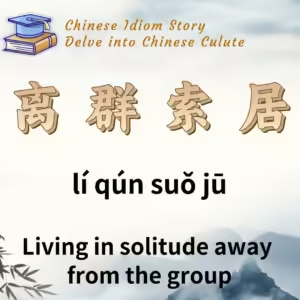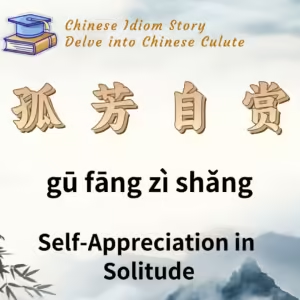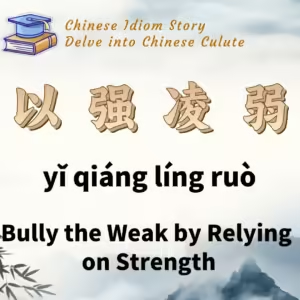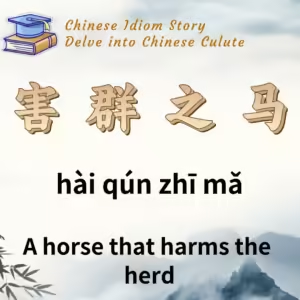
Chinese Idiom: 离群索居 (Li Qun Suo Ju)
English Translation: Living in solitude away from the group
pīn yīn: lí qún suǒ jū
Idiom Meaning: This idiom describes the act of leaving a community and living alone, often implying a sense of loneliness.
Historical Source: The Book of Rites (《礼记 ·檀弓上》).
Idiom Story:
During the late Spring and Autumn period, Confucius had a disciple named Bu Shang, also known as Zi Xia. One year, he faced a tragic loss when his son died. Overwhelmed by grief, he wept incessantly, to the point where his eyes became swollen and he could no longer see.
Concerned for him, another disciple, Zeng Shen (or Zengzi), visited to offer comfort. Upon seeing Zi Xia’s deep sorrow, Zeng Shen spoke to him, “Heaven, I have done nothing wrong! Why must I face such severe punishment?”
In response, Zeng Shen offered a perspective, urging Zi Xia to examine himself critically. He said, “How can you claim innocence? In the past, when your father died, you did not shed a single tear; now, upon your son’s death, you weep until you cannot see. Can’t you see the discrepancy in your feelings?”
Zi Xia listened intently and gradually began to realize the error in his ways. Overcome with gratitude, he admitted, “I have been living in solitude for too long!” His words expressed his recognition of how isolating himself from his friends and community had clouded his judgment, preventing him from understanding his emotional responses.
From this story, the phrase “吾离群而索居” was later simplified to the idiom 离群索居, symbolizing the isolation that can arise from separating oneself from social connections and the wisdom lost in solitude.






